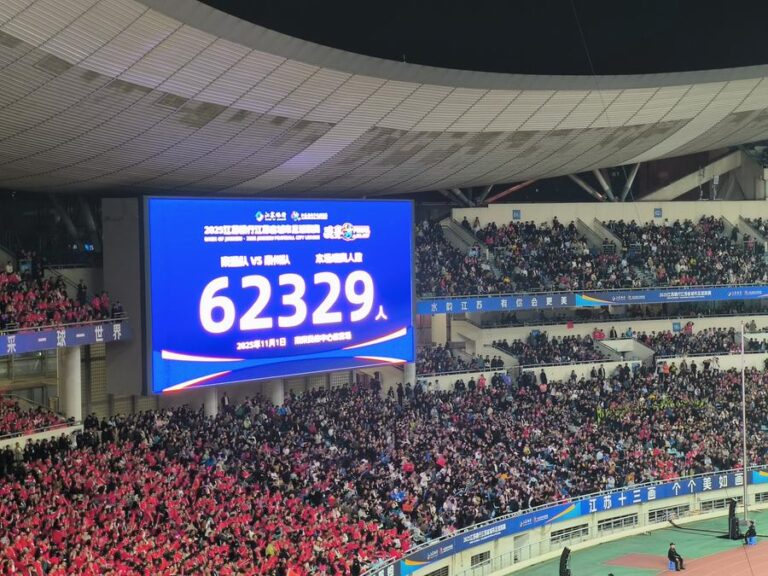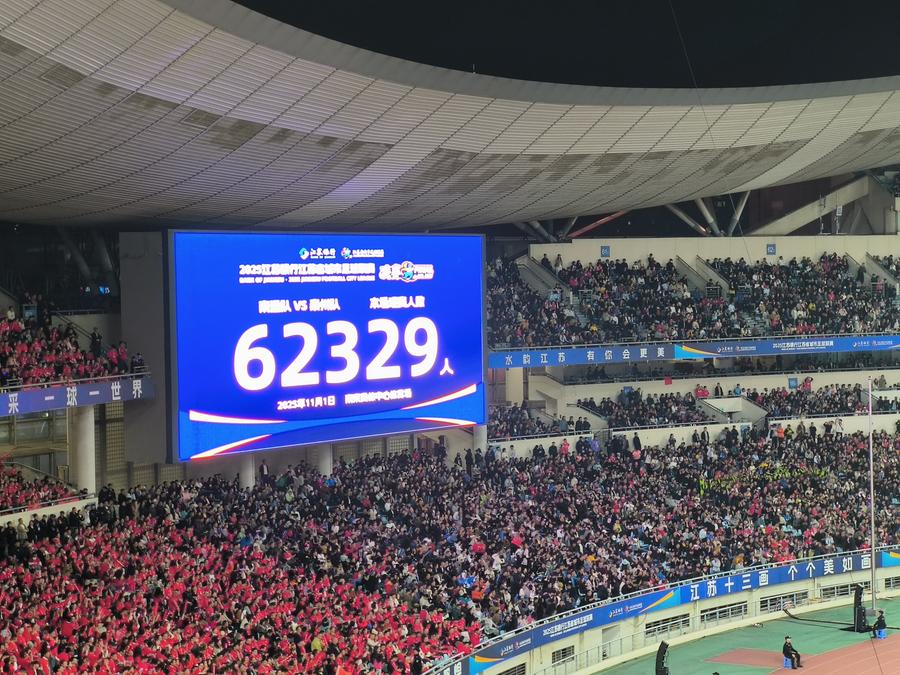
The Su Super League reflects a profound cultural shift, as sports are moving beyond the elite and into everyday life. It’s about creating millions of participants, spectators and consumers who find meaning, identity and joy in the game itself.
by sportswriter He Leijing
NANJING, Nov. 3 (Xinhua) — The final whistle did more than end a football match. It signaled the rise of a new force in China’s sporting landscape, one powered not by star contracts or corporate sponsorships, but by ordinary people and their extraordinary passion.
When over 62,000 fans packed into the stadium to watch the final of the Su Super League – an amateur league modeled after the English Premier League but fueled by grassroots energy – something shifted.
What began as a regional tournament among 13 cities in Jiangsu Province has erupted into a full-blown social phenomenon, uniting football, tourism and commerce in a single, pulsating ecosystem of enthusiasm.
It’s not hard to see why. Tickets for the final had a success ballot rate of just 1.2 percent – tougher to get than many top-tier global finals. Total attendance for the season topped 2.4 million, and livestreams attracted billions of views.
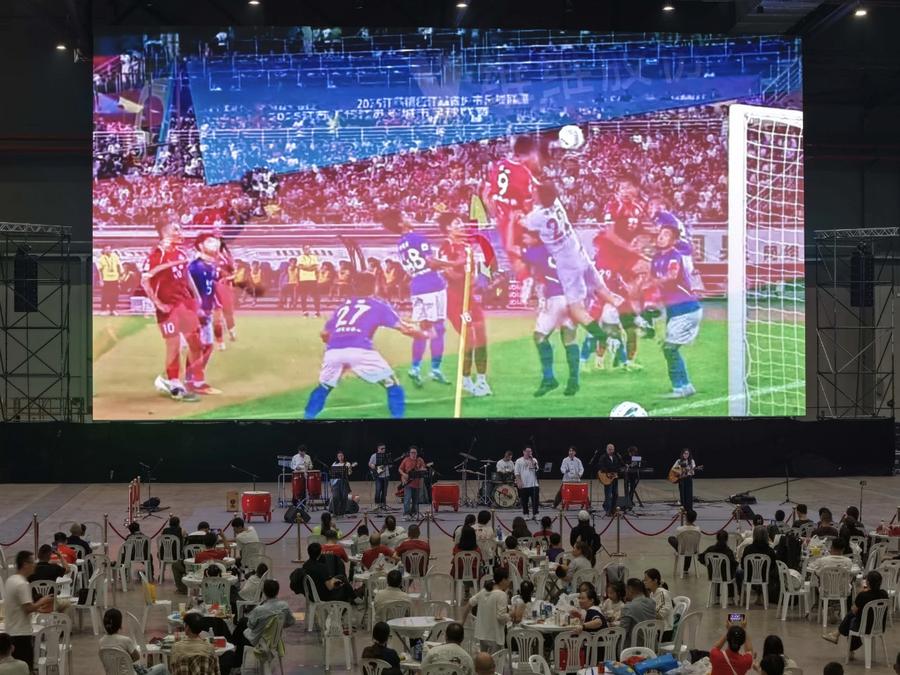
But the roar of the crowd tells only half the story.
Beyond the pitch, the league that kicked off in May has become a blueprint for how sporting passion can ignite economic vitality. On match weekends, city plazas and shopping malls across Jiangsu transform into pop-up fan zones, buzzing with food stalls, live screenings and local brands cashing in on the frenzy.
The “ticket economy” has turned spectators into travelers, and fans into consumers. Families plan weekend trips around fixtures, hotels offer match-linked packages, and tourist landmarks open their gates for free or half price to ticket holders.
Across cities, commercial streets beam with giant screens and sizzling barbecue stalls, welcoming thousands of visitors each match night. Football is no longer just a sport – it’s a lifestyle event, a traveling festival that connects streets, small businesses and the collective joy of being part of something bigger.
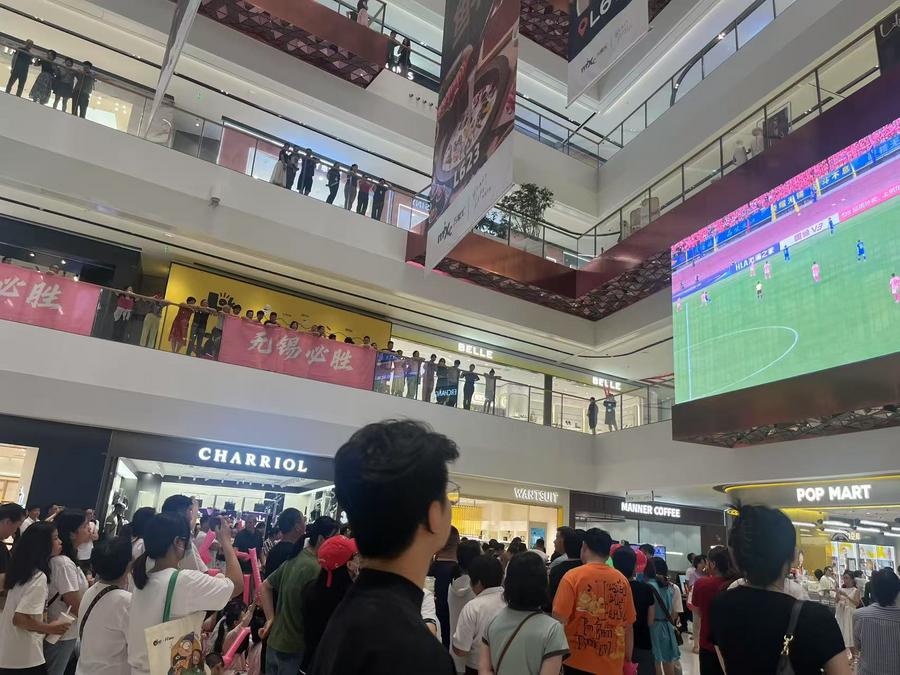
This fusion is no accident. It dovetails perfectly with China’s drive to unleash domestic consumption as one of its key growth engines. The country’s latest policy envisions a seven-trillion-yuan sports industry by 2030, spurred by such event-driven spending.
The Su Super League shows the true power of sports, where stadiums become the heart of communities, fandom turns into a cultural bond and local economies thrive on the pulse and passion of play.
At its heart, the phenomenon reflects a profound cultural shift, as sports move beyond the elite and into everyday life. It’s not just about producing the next professional star; it’s about creating millions of participants, spectators and consumers who find meaning, identity and joy in the game itself. Each cheer in the stands, each selfie at a viewing plaza and each meal shared after a match feeds into a new rhythm of urban vitality.
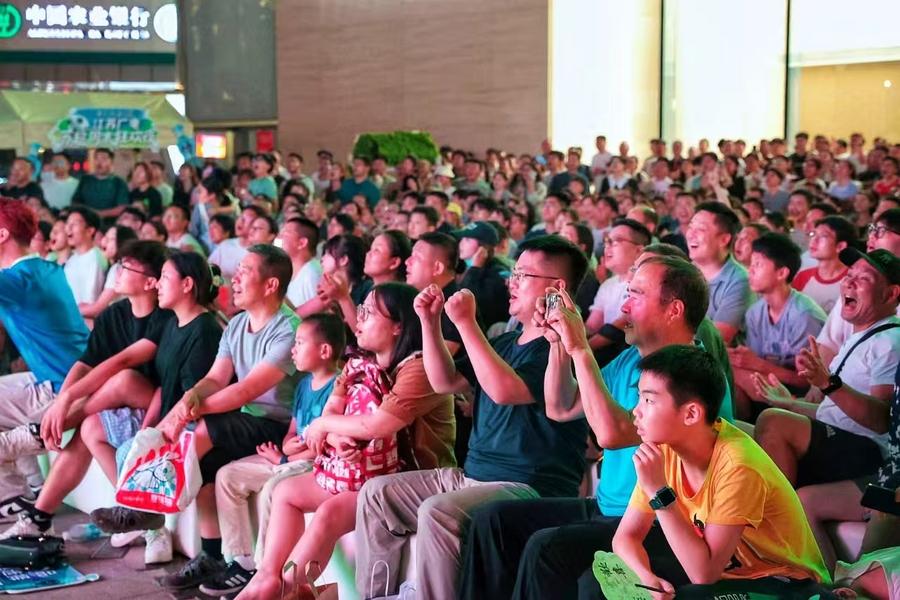
“People don’t just want to watch,” as one scholar put it. “They want to be there – to feel it, to live it.”
That sentiment captures the essence of the new wave. The Su Super League proves that in the end, the biggest victory isn’t measured on the scoreboard.
When passion meets participation, it sparks more than goals and glory – it fuels spending, strengthens communities and redefines what sport means in modern China. ■

